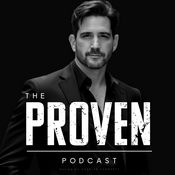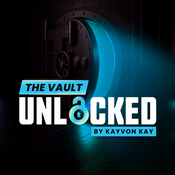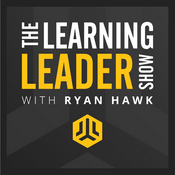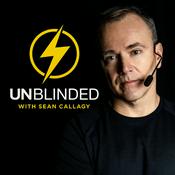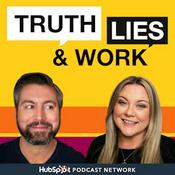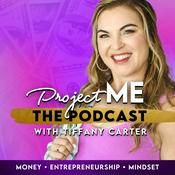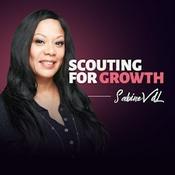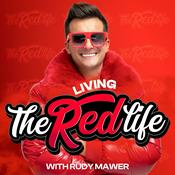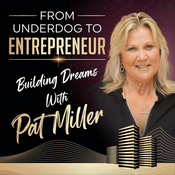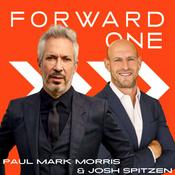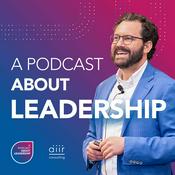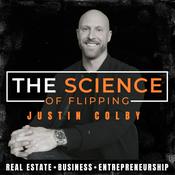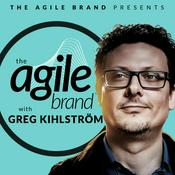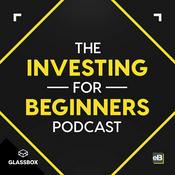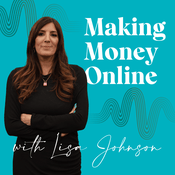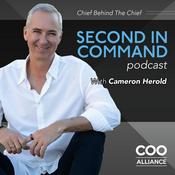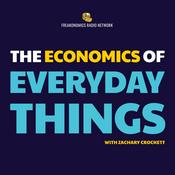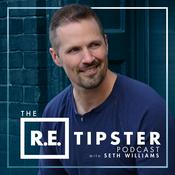214 episodes
- On this episode of the Scouting For Growth podcast, Sabine VdL talks to Sangha Penesetti, founder and CEO of goZeal, who didn’t just break the glass ceiling—she installed a flexible skylight.
Today we’ll dive into the economics of equity, why flexible work is not a perk but a performance driver, and how insurers can win by rethinking who gets a seat at the table—and how that table is set.
KEY TAKEAWAYS
In my early career, every client meeting I walked into was a room full of men. I was the only woman of colour. When I became a mother in 2010 I felt first-hang how unforgiving the industry was, there was no real flexibility, no empathy around new mums (though that may have just been the company I worked for then), and certainly no system that was designed for working mums.
During Covid I found my own community: Brilliant, highly educated women, especially Indian and Asian mums, step out of the workforce to raise kids and never return. Not because they lacked ambition, but because the system simply wasn’t build for them. That’s the moment I realised it wasn’t an individual struggle but a systemic design flaw, that’s when goZeal was born.
We talk about empowerment a lot, but what is empowerment? It‘s the financial empowerment, the capacity for women to have the money to spend on whatever they want be that a Gucci bag or feeding their kids. The data is clear: When women (and especially women of colour) advance, companies become more innovative and perform better financially.
BEST MOMENTS
‘My experience taught me that being included isn’t the same as being empowered.’
‘Radical inclusion flips the dynamic. It’s not about representation, it’s about access to meaningful work decision-making authority and economic mobility.’
‘Remote work is not “flexibility.” Flexibility means flexibility of time. I wanted to hire women directly to give them the autonomy of time. Direct impact comes when you are the employer.’
‘True flexibility allows for peak productivity not proximity. When people work at their best insurers benefit from higher quality work, lower burnout, less attrition, stronger retention, all of that good stuff.’
ABOUT THE GUEST
Sangha Penesetti is the powerhouse founder and CEO of goZeal, a company rewriting the rules of work by directly hiring skilled women, especially women of colour, for high-impact, flexible roles in insurance and tech. With 18 years of experience in finance and insurance, she’s lived the challenges of being the only woman at the table—and decided to build her own.
Under her leadership, goZeal is more than a talent platform—it’s a movement. One that’s tackling systemic inequity, modernizing legacy operations, and showing insurers that flexible work is not a perk but a strategic edge.
She’s here to talk about the real economics of inclusion, why hybrid isn’t enough, and how insurers can close talent gaps while building a future-ready workforce.
ABOUT THE HOST
Sabine VanderLinden is a corporate strategist turned entrepreneur and the CEO of Alchemy Crew Ventures. She leads venture-client labs that help Fortune 500 companies adopt and scale cutting-edge technologies from global tech ventures. A builder of accelerators, investor, and co-editor of the bestseller The INSURTECH Book, Sabine is known for asking the uncomfortable questions—about AI governance, risk, and trust. On Scouting for Growth, she decodes how real growth happens—where capital, collaboration, and courage meet.
If this episode sparked your thinking, follow Sabine VanderLinden on LinkedIn, Twitter, and Instagram for more insights.
And if you’re interested in sponsoring the podcast, reach out to the team at [email protected] Marinela Profi: Building the Trust Frontier or How Agentic AI Is Redefining Enterprise Decision-Making
12/18/2025 | 45 mins.On this episode of the Scouting For Growth podcast, Sabine VdL talks to Marinela Profi, Global Market Strategy Lead for AI, GenAI and Agentic AI at SAS, about the rise of agentic AI and how we will move from hype to real, reliable AI.
In today’s episode, we’ll discuss: Why LLMs alone don’t solve business problems – and what does, how governance is becoming the new frontier of AI trust, and what leaders should expect by 2026, as enterprises shift from experiments to autonomous, explainable intelligence.
KEY TAKEAWAYS
A generative AI chatbot is really good and answering questions, generating text, or summarising content. But, it typically stops when it comes to conversation. On the other hand, an AI agent goes beyond that, it can take action, it has goals, memory, reasoning capabilities and can orchestrate multi-set workflows using a combination of not just large-language models but also rules, data and analytics. Generative AI talks, and agentic AI does.
The 5-step lifecycle of an agent is a framework I put together to help me and my customers understand what an agent actually does step-by-step in practice. 1. Perception 2. Cognition 3. Decisioning 4. Action, and 5. Learning.
Governance boards in 2026 will act more like digital oversight committees, they will ensure that agents aren’t just smart, but they are safe, explainable and accountable.
BEST MOMENTS
‘Post action the agent learns from feedback from a human operative. It’s important to monitor the learning loops, you cannot allow the agent to “self-update” in ways that are uncontrolled.’
‘How autonomous should an agent be? 90% of the time it depends on the risk and impact of the task.’
‘Autonomy without accountability is a risk multiplier.’
‘Governance doesn’t stop at deployment, performance must be continuously monitored.’
ABOUT THE GUEST
Marinela Profi helps organizations move from AI hype to trusted impact. As Global Market Strategy Lead for AI, GenAI, and Agentic AI at SAS, she works with enterprises in financial services, healthcare, and government to build AI systems that don’t just act fast—but act responsibly.
With an MBA and a Master’s in Statistics and AI, Marinela bridges two worlds: translating complex data science into clear business strategy. Her work focuses on how agentic AI—intelligent systems that perceive, reason, and act autonomously—can deliver governed, explainable decisions instead of black-box predictions.
A frequent keynote speaker at international AI and analytics events, she shares insights on the evolution from generative to agentic AI and the new frontier of AI governance, trust, and human-AI collaboration. Marinela is also an Advisory Board Member for Wake Technical Community College’s Data Science Program, helping shape future-ready curricula that connect classroom learning with real-world AI innovation.
ABOUT THE HOST
Sabine VanderLinden is a corporate strategist turned entrepreneur and the CEO of Alchemy Crew Ventures. She leads venture-client labs that help Fortune 500 companies adopt and scale cutting-edge technologies from global tech ventures. A builder of accelerators, investor, and co-editor of the bestseller The INSURTECH Book, Sabine is known for asking the uncomfortable questions—about AI governance, risk, and trust. On Scouting for Growth, she decodes how real growth happens—where capital, collaboration, and courage meet.
If this episode sparked your thinking, follow Sabine VanderLinden on LinkedIn, Twitter, and Instagram for more insights.
And if you’re interested in sponsoring the podcast, reach out to the team at [email protected]- On this episode of the Scouting For Growth podcast, Sabine VdL talks to Andrei Craciunescu, founder and CEO of RiskCube, about why the next generation of insurance will be built like software: adaptive, transparent, and embedded into every business platform.
They also discuss how AI and data are transforming the broker's role from middleman to intelligent orchestrator, and what the insurance experience of 2030 could look like when protection becomes invisible and trust becomes the new currency.
KEY TAKEAWAYS
What companies want from the insurance market is fast underwriting, not to talk with humans so much anymore, especially startups; they want a quote in minutes, not months. This is how we got into the segment where we offer business insurance for startups – mainly venture-backed startups.
Some providers already offer what we are doing, but there is no comparison. Every founder needs to go to each insurance company separately and ask for a quote, which often varies a lot – sometimes by 40%. They spend a lot of time investigating these quotes, which is expensive and hard to understand. RiskCube is an AI insurance agency for startups where founders can buy and manage insurance online.
We looked at what an agency traditionally does: it has different processes in place, such as insurance applications, renewals, cancellations, and claims. We tried to map out all these processes to see which can be done by AI agents. AI cannot solve the whole insurance value chain, but we see a huge adoption in the claims and applications processes.
Generally, most founders don’t really care which insurance company they’re with; they care that they have somebody who really understands them as a customer. We want startups to come to us because they trust the system, which provides a fast experience that works for them. It’s not very complicated, what we do for them at the beginning, we provide a smooth process where we can say they have high, medium or low risk then evaluate different quotes for them.
BEST MOMENTS
‘Everybody’s pushing on the AI front, but the insurance market is also evaluating if it’s really necessary; it’s not all in, which is impressive.’
‘We build the firm first and then embed the technology inside the firm. This will make us defensible in the future because we will own the data in our agency and use it to train our own model.’
‘People are using a lot of AI nowadays, but nobody really understands where the data is going or hosted.’
‘Insurance companies tend to adapt AI for themselves, not for the whole market. We want to bring them all together in one channel.’
ABOUT THE GUEST
Andrei Craciunescu is redefining risk management with RiskCube, an AI-powered platform revolutionising insurance by streamlining risk assessments, accelerating quote processes, and providing real-time insights to help businesses secure coverage faster and smarter.
LinkedIn
ABOUT THE HOST
Sabine VanderLinden is a corporate strategist turned entrepreneur and the CEO of Alchemy Crew Ventures. She leads venture-client labs that help Fortune 500 companies adopt and scale cutting-edge technologies from global tech ventures. A builder of accelerators, investor, and co-editor of the bestseller The INSURTECH Book, Sabine is known for asking the uncomfortable questions—about AI governance, risk, and trust. On Scouting for Growth, she decodes how real growth happens—where capital, collaboration, and courage meet.
If this episode sparked your thinking, follow Sabine VanderLinden on LinkedIn, Twitter, and Instagram for more insights.
And if you’re interested in sponsoring the podcast, reach out to the team at [email protected] - On this episode of the Scouting For Growth podcast, Sabine VdL talks to Rob Schimek, Group CEO at bolttech, about how bolttech’s connector model is redefining global insurance distribution, from telcos to auto makers and beyond.
They also talk about why the future of protection will depend on trust, data and design more than policy documents and premiums, and what leadership really looks like when you are building at the intersection of revelation, innovation, and human impact.
KEY TAKEAWAYS
If you have an hour to solve a problem you should spend 55 minutes on the problem and then 5 minutes on the solution. I’ve spent my career in the problem, the formation of bolttech is the attempt at the solution – it’s the path that I’ve chosen to bring that solution to the marketplace.
Our mission is to work out how to close a multi-billion-dollar protection gap that has existed for years, that’s getting bigger? In order to do that we need to really understand the problem. We think there are 4 basic drivers for this multi-billion-dollar protection gap that and they’re pretty irrefutable.
We’re trying to make a seamless connection between the buyers of protection products (insurers) and the distribution partners who have access to the customers so we can put those solutions into the hands of the customers. bolttech’s here to try to provide tailored, affordable, accessible, and convenience insurance in the hands of the customer on a B2B2C basis, connecting big partners who have lots of customers to the insurance providers.
Without the data there’s a tendency to paint everything with one brush, like it’s all the same. Data is accessible and available on a real-time basis today and it can be available with no intervention, straight from the vehicle telematics about the unique driver.
BEST MOMENTS
‘We really want to connect people with more ways to protect the things that they value, we want to close the global protection gap.’
‘The more we make connections frictionless, the more the connection will happen and the more the protection gap will get closed.’‘
If the mission and the vision are super-well-known then nothing can distract you from solving that problem, regardless of what’s going on in the marketplace around you.’‘
If a customer doesn’t trust the use of AI in their interactions with you then AI won’t be successful in that space because it won’t be accepted in that space. Ultimately it comes back to do we do things the right way and give the customers a reason to trust us?’
ABOUT THE GUEST
Rob Schimek is Group Chief Executive Office at bolttech where he leads the team across its operations globally, overseeing its growth and partnership opportunities.
With more than 30 years of experience in the financial services industry, Rob previously held senior leadership roles, including Managing Director & Group Chief Operating Officer for FWD Group, President and Chief Executive Officer of AIG’s commercial insurance businesses worldwide, and Chief Executive Officer of the Americas for AIG. Prior to that, he served as President and Chief Executive Officer of EMEA for AIG, and was the Chief Financial Officer of AIG’s global property and casualty insurance business.
LinkedIn
ABOUT THE HOST
Sabine VanderLinden is a corporate strategist turned entrepreneur and the CEO of Alchemy Crew Ventures. She leads venture-client labs that help Fortune 500 companies adopt and scale cutting-edge technologies from global tech ventures. A builder of accelerators, investor, and co-editor of the bestseller The INSURTECH Book, Sabine is known for asking the uncomfortable questions—about AI governance, risk, and trust. On Scouting for Growth, she decodes how real growth happens—where capital, collaboration, and courage meet.
If this episode sparked your thinking, follow Sabine VanderLinden on LinkedIn, Twitter, and Instagram for more insights.
And if you’re interested in sponsoring the podcast, reach out to the team at [email protected] - On this episode of the Scouting For Growth podcast, Sabine VdL talks to us about all she’s learned from the numerous guests on the show recently, from startup founders who build AI to simplify the chaotic insurance back office, to innovation leaders in Fortune 500 firms wrestling with ethics, regulation, and talent shortages.
After dozens of conversations here’s what Sabine has learned: AI isn’t just changing our tools. It’s changing our temperament.
This episode is her reflection on those lessons; a guide for leaders and builders trying to navigate this new age of intelligence and unpacks five principles that define successful AI adoption.
KEY TAKEAWAYS
When Branch Insurance introduced AI into its claims process, something unexpected happened. It wasn’t the customers who resisted, it was the adjusters. They were worried, not because AI made mistakes but because it didn’t.
When Lisa Bechtold’s (who led AI governance at Zurich Insurance, now at Nestlé) team started implementing AI, they faced the classic dilemma: Move fast or move right. Lisa said: “We don’t see governance as slowing innovation – we see it as enabling trust at speed.”
ERGO Group worked with CamCom, a startup from India that uses computer vision to detect car damage from photos or drones. The tech was brilliant. The challenge? Integrating it into a multinational insurer’s process. They didn’t just hand over the product, they sat side by side – engineers, adjusters, compliance officers, even lawyers – to make it work. It took nearly a year to get from pilot to production and the result wasn’t just faster claims; it was a new relationship model. The startup learned how corporates think. The corporate learned how startups move. That’s the real win.
After all the talk about data, systems, ethics, and pilots, what really matters is how humans evolve. AI won’t replace people, but people who know how to use AI will replace people who don’t. That’s not a threat, it’s an invitation. AI is already changing what we expect from talent. Claims adjusters now need to interpret AI outputs. Underwriters must question models. Leaders must learn to manage digital teammates.
BEST MOMENTS
‘Intelligent tool don’t remove human judgment; they reveal it in higher resolution.’
‘In this AI era, trust is the new currency.’‘Every AI dream dies in the shadow of bad data.’‘The irony is that the more intelligent our systems become, the more human our leadership must be. Empathy, creativity, ethics aren’t data points, they’re our differentiators.’
ABOUT THE HOST
Sabine VanderLinden is a corporate strategist turned entrepreneur and the CEO of Alchemy Crew Ventures. She leads venture-client labs that help Fortune 500 companies adopt and scale cutting-edge technologies from global tech ventures. A builder of accelerators, investor, and co-editor of the bestseller The INSURTECH Book, Sabine is known for asking the uncomfortable questions—about AI governance, risk, and trust. On Scouting for Growth, she decodes how real growth happens—where capital, collaboration, and courage meet.
If this episode sparked your thinking, follow Sabine VanderLinden on LinkedIn, Twitter, and Instagram for more insights.
And if you’re interested in sponsoring the podcast, reach out to the team at [email protected]
More Business podcasts
Trending Business podcasts
About Scouting for Growth
There are over 180,000 FinTech ventures out there today.
Still, my team and I monitor 4.5 million of those ventures across markets every week.
Why, because the boundaries of business are becoming highly blurred. FinTech. InsurTech. HealthTech. WealthTech. AITech. This number changes every single month. But here’s the stat that really matters.
Regardless of market or region, only 25% of these ventures have secured funding and meaningful backing.That means 75% are still on the outside looking in—searching not just for capital, but for access, credibility, and value-creating partnerships with Global Fortune 500 companies. And this is where things get interesting. Because funding isn’t just about money. It’s about how corporates think, how investors decide, and why some ventures scale while others stall.
In this podcast, we pull back the curtain on corporate venturing. Well, to be more precise, we will focus on the Venture-Client Model, or how a growth venture becomes a commercial customer of a corporation. Then it only makes sense for VCs, including corporate VCs, to invest in successful, repeatable partnerships. And what founders must understand if they want to build, grow, and scale—intelligently. You know this already. This isn’t theory. It’s strategy, tactics, tools, and hard-won insights from those who control capital and collaboration. So if you’re a founder, an operator, or a leader navigating this high-velocity digital transformation ecosystem, well, this podcast is for you.
Listen in. Challenge your assumptions. And join the conversation.
Podcast websiteListen to Scouting for Growth, Proven Podcast and many other podcasts from around the world with the radio.net app
Get the free radio.net app
- Stations and podcasts to bookmark
- Stream via Wi-Fi or Bluetooth
- Supports Carplay & Android Auto
- Many other app features
Get the free radio.net app
- Stations and podcasts to bookmark
- Stream via Wi-Fi or Bluetooth
- Supports Carplay & Android Auto
- Many other app features

Scouting for Growth
Scan code,
download the app,
start listening.
download the app,
start listening.

